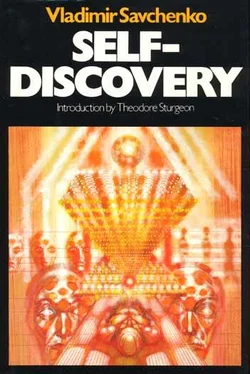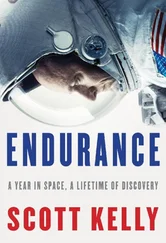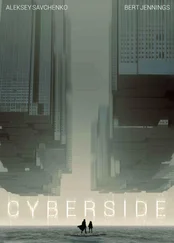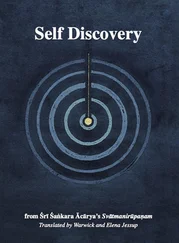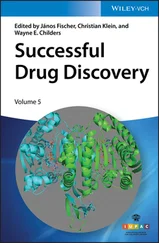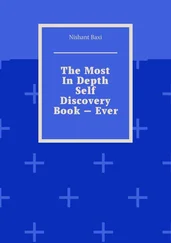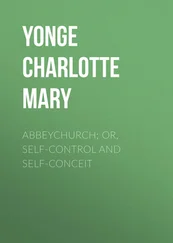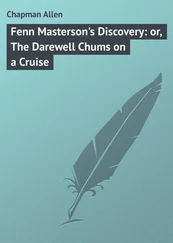Vladimir Savchenko - Self-discovery
Здесь есть возможность читать онлайн «Vladimir Savchenko - Self-discovery» весь текст электронной книги совершенно бесплатно (целиком полную версию без сокращений). В некоторых случаях можно слушать аудио, скачать через торрент в формате fb2 и присутствует краткое содержание. Город: NEW YORK — LONDON, Год выпуска: 1979, Издательство: MACMILLAN PUBLISHING CO., INC; COLLIER MACMILLAN PUBLISHERS, Жанр: Фантастика и фэнтези, на английском языке. Описание произведения, (предисловие) а так же отзывы посетителей доступны на портале библиотеки ЛибКат.
- Название:Self-discovery
- Автор:
- Издательство:MACMILLAN PUBLISHING CO., INC; COLLIER MACMILLAN PUBLISHERS
- Жанр:
- Год:1979
- Город:NEW YORK — LONDON
- ISBN:нет данных
- Рейтинг книги:3 / 5. Голосов: 1
-
Избранное:Добавить в избранное
- Отзывы:
-
Ваша оценка:
- 60
- 1
- 2
- 3
- 4
- 5
Self-discovery: краткое содержание, описание и аннотация
Предлагаем к чтению аннотацию, описание, краткое содержание или предисловие (зависит от того, что написал сам автор книги «Self-discovery»). Если вы не нашли необходимую информацию о книге — напишите в комментариях, мы постараемся отыскать её.
Self-discovery — читать онлайн бесплатно полную книгу (весь текст) целиком
Ниже представлен текст книги, разбитый по страницам. Система сохранения места последней прочитанной страницы, позволяет с удобством читать онлайн бесплатно книгу «Self-discovery», без необходимости каждый раз заново искать на чём Вы остановились. Поставьте закладку, и сможете в любой момент перейти на страницу, на которой закончили чтение.
Интервал:
Закладка:
“I did,” the detective’s voice fell. “Twice.”
“And that’s when your body melted!” Zubato broke out in the hearty laugh of a man who knows that disaster has not struck him.
The detective thought about it and then shook his head.
“Now, you’re not going to throw me off the track here. I saw for myself… but what are we going to do with this skeleton now?”
“The hell with it. Wait, here’s an idea. Send it over to the city sculpture studio. Let them reconstruct the face according to Professor Gerasimov’s method; they are familiar with it. If it’s him, you’ll have the crime sensation of the century on your hands. If not — “Zubato gave Matvei Apollonovich a sympathetic look. “I wouldn’t want to be in your shoes when you talk with Aleksei Ignatievich. All right, I’ll send it over there myself. So be it.” He rose. “And while I’m at it, I’ll do the death certificate. I’ll settle for a skeleton, if you can’t come up with a body.”
Zubato left.
“What if they did trick me?” Onisimov recalled the academician’s hostility, Assistant Professor Hilobok’s flattery, and he shuddered. “I lost the body, the most important thing. Good show there!”
He dialed the chemistry lab.
“Viktoriya Stepanovna, this is Onisimov. Did you analyze the liquid?”
“Yes, Matvei Apollonovich. The report is being typed, but I’ll read you the conclusion. “Water — 85 percent, protein — 13 percent, amino acids — 0.5 percent, fatty acids — 0.4 percent and so on. In other words, it’s human blood plasma. According to the hemoglutins, it’s classified as type A, with lowered water content.”
“Yes, I see. Could it be toxic?”
“I doubt it.”
“Even, if say, you bathed in it?”
“Well, you could swallow some and drown. Does that help?”
“Thank you!” Matvei Apollonovich slammed down the phone. “Wise ass! But I guess that means accidental death is ruled out. Could the assistant have drowned him in the tub? No, it doesn’t look like a drowning.”
Onisimov liked the entire business less and less with every passing minute. He spread out the documents he got at the institute’s personnel department and at the laboratory and lost himself in their study. He was distracted by the phone.
“Matvei, you owe me!” boomed Zubato’s triumphant voice. “I’ve managed to establish a few things from the skeleton. There are deep vertical cracks in the middle of the sixth and seventh ribs on the right side. Such cracks are the result of a blow by a heavy blunt instrument or against a blunt object, whatever. The surface has minute cracks, fresh — “
“I see!”
“These cracks in themselves can not be the cause of death. But a violent blow could have seriously injured the internal organs, which, unfortunately, are missing. Well, that’s about it. I hope it helps.”
“And how! Did you send out the skull for identification?”
“Just now. And I called ahead. They promised to do it as fast as possible.”
“So, this is no accident. Liquid and short circuits don’t break a man’s ribs. Oh, oh. It looks as if there were two accident victims there: an injured victim and a dead victim. And it looks as though the two had a serious fight.”
Onisimov felt better. The case was taking on familiar aspects. He began composing an urgent telegram to Kharkov.
The June day was getting hotter. The sun melted the asphalt. The heat seeped into Onisimov’s office, and he turned on the fan on his desk.
The answer from the Kharkov police came at exactly 1:00 P.M. Lab assistant Kravets was brought in at 1:30. As he entered the office, he looked around, and smirked as he noticed the barred windows.
“Is that to make people confess faster?”
“No — no,” Matvei Apollonovich drawled gently. “This building used to be a wholesale warehouse and so the entire first floor has reinforced windows. We’ll be removing them soon; not too many robbers try breaking into a police station, heh — heh. Sit down. Are you feeling all right now? Can you make a statement?”
“I can.”
The assistant walked across the room and sat in a chair opposite the window. The detective looked him over. He was young, maybe twenty — four, not older than that. He looked like Krivoshein, the way he might have been ten years ago. “Actually, he didn’t look like that,” Matvei Apollonovich thought as he looked at the photo in Krivoshein’s personnel file. “This fellow is much more handsome.” And there really was something of a model’s or actor’s perfection in Kravets’s face. The impression of perfection was marred by the eyes — actually not the eyes themselves, which were blue and had a youthful clarity, but in the marksman’s squint of the lids. “He has eyes that seem to have lived a lot,” the detective noted. “He seems to have gotten over the experience quickly enough. Let’s see.”
“You know, you resemble the deceased.”
“The deceased!” The assistant clenched his jaw and shut his eyes for a second. “That means — “
“Yes, it does,” Onisimov said harshly. “He’s jumpy,” he thought. “Well, let’s do this in order.” He reached for a piece of paper and unscrewed his pen. “Your name, patronymic, age, place of work or study, address?”
“But you must know all that already?”
“Know or not, that’s the regulation; the witness must give all that information himself.”
“So he’s dead…. What should I do now? What should I say? It’s a catastrophe. Damn it, I shouldn’t have come to the police. I should have run off from the clinic. What will happen now?” Kravets thought.
“Please, write down the following: Viktor Vitalyevich Kravets, age twenty — four, a student in the fifth year in the physics department of Kharkov University. I reside in Kharkov, on Kholodnaya Gora. I’m here to do my practical work.”
“I see,” the detective said, and instead of writing it down, twisted his pen rapidly and aimlessly. “You were related to Krivoshein. How?” “Distantly,” the student laughed uncomfortably. “Seventh cousin twice removed, you know.”
“I see!” Onisimov put down his pen and picked up the telegraph; his voice became severe. “Look here, citizen, it doesn’t check out.” “What doesn’t check out?”
“Your story, that you’re Kravets, that you live and study in Kharkov, and so on. There’s no student by that name in Kharkov. And the person you name has never lived at 17, Kholodnaya Gora, either.” The suspect’s cheeks suddenly dropped, and his face turned red. “They got me. How stupid of me! Damn it! Of course, they checked all that out immediately. Boy, lack of experience shows every time. But what can I say now?” he thought.
“Tell the truth. And in detail. Don’t forget that we’re dealing with a homicide here.”
Kravets thought: “The truth. Easier said than done.” “You see, the truth… how can I put it… that’s too much and too complicated,” the assistant began mumbling, hating and despising himself for this lack of control. “I’d have to discuss information theory and the modeling of random processes.”
“Just don’t try to cloud the issues, citizen,” Onisimov said, frowning disdainfully. “People aren’t killed by theories — this was definitely practical application and fact.”
“But… you must understand, actually no one at all may have died. It can be proven… or attempted to be proven. You see, citizen investigator — (Why did I call him that? I haven’t been arrested yet.) — You see, first of all, a man is not, well, not a hunk of protoplasm weighing 150 pounds. There are the fifty quarts of water, forty — four pounds of protein, fats and carbohydrates, enzymes, and so on. No, man is first and foremost information. A concentration of information. And if it has not disappeared, then the man is still alive.”
Читать дальшеИнтервал:
Закладка:
Похожие книги на «Self-discovery»
Представляем Вашему вниманию похожие книги на «Self-discovery» списком для выбора. Мы отобрали схожую по названию и смыслу литературу в надежде предоставить читателям больше вариантов отыскать новые, интересные, ещё непрочитанные произведения.
Обсуждение, отзывы о книге «Self-discovery» и просто собственные мнения читателей. Оставьте ваши комментарии, напишите, что Вы думаете о произведении, его смысле или главных героях. Укажите что конкретно понравилось, а что нет, и почему Вы так считаете.
